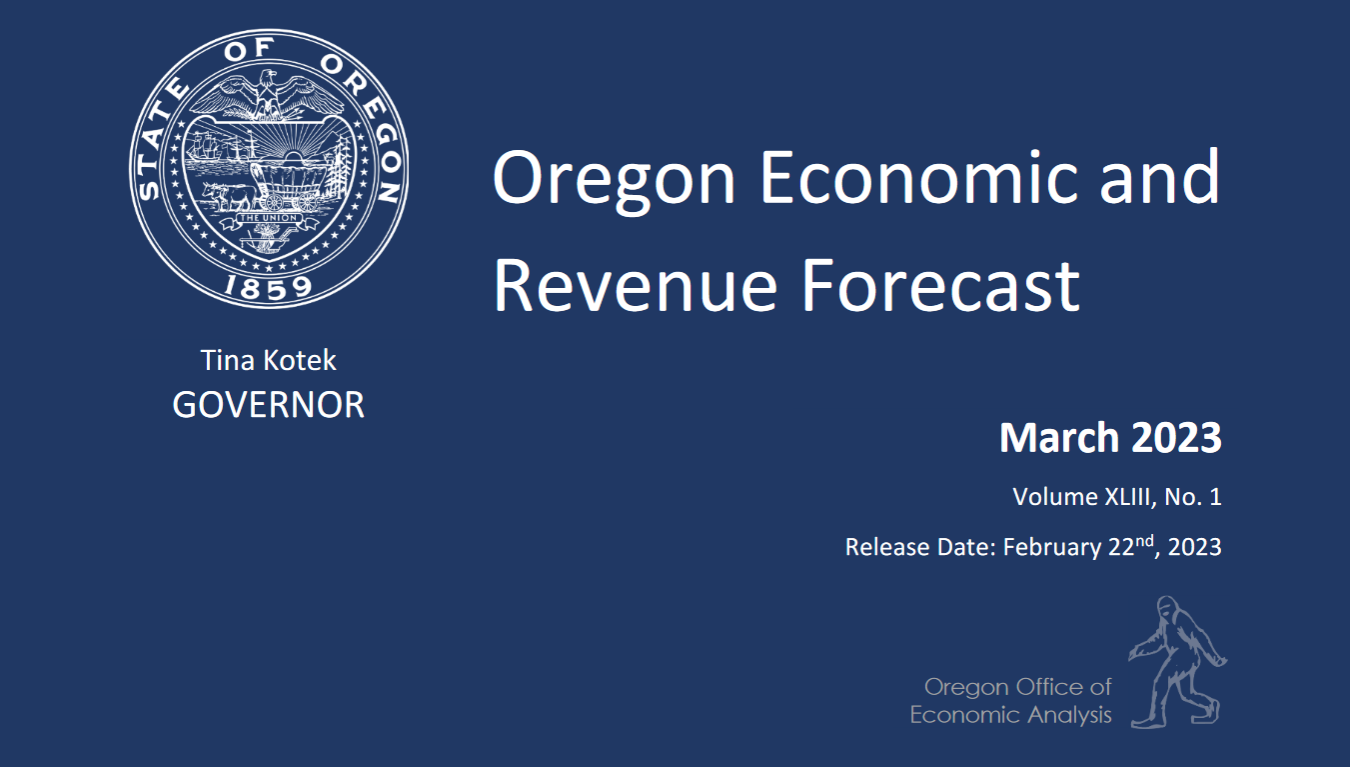Freak Snowstorm Brings the Capitol to a Halt

The Takeaway
The legislature packed its agenda for the week with a host of higher-profile topics, including moving a suite of housing proposals out of committee, but the weather had something else in store. On Wednesday, meteorologists forecasted a light dusting of snow in the hills but an otherwise uneventful weather. They were wrong. The snowstorm hung over Portland and surrounding areas all day and night, dropping nearly 11 inches of snow in some places. The freak weather event shut down the Portland metropolitan area, bringing the bustling Capitol to a standstill and delaying committee hearings and votes until next week.
On Thursday, the House Housing & Homelessness Committee intended to advance a title-only study bill with a 133-page amendment detailing the legislature’s early response to housing affordability, supply, and homelessness. The governor, legislative leadership, and committee spent the better part of the first five weeks negotiating the contents of the housing package. While it is unlikely to please everyone, the assumption was that it would easily pass with bipartisan support. Due to extenuating circumstances and scheduling issues, however, it is unlikely all of the committee’s Republicans will be able to vote on the housing package now scheduled for next week, creating the auspices of partisan opposition while that is not the case.
The Joint Committee on Semiconductors also released its early package to lure investments from chip manufacturers and potentially billions of dollars through the federal CHIPS Act. Like the housing package, the early package left several key policy initiatives on the table for future discussion, including a much-needed tax incentive for research and development, but it seems to be a notable first step in the legislature’s efforts to attract advanced manufacturing. Without a doubt, there will be more to this story in the weeks and months ahead.
Finally, Tuesday marked the final day for lawmakers to introduce unlimited measures for the session. According to the Chief Clerk of the House, members introduced a “mini-avalanche” of measures that created a backlog for their staff to process and add to the legislative calendar. The chambers are working through hundreds of bill introductions that will not arrive for public consumption until next week. The message, or perhaps plea, from chamber staff was to please bear with them as they work through the logjam.
Revenue Forecast
On Wednesday morning, the legislative revenue committees received positive news from the state economists about the economic trends and anticipated revenues for the current and upcoming budget cycles. In November, the economists warned lawmakers they included a mild downturn and steep decline in government revenues in their baseline forecast, suggesting a difficult budget-writing season for the legislature in a few months. The updated forecast drastically changes the political outlook toward the budget, although it may not alleviate some of the hard decisions.
Overall, the economists told the legislature their current forecast projects an additional $696 million in resources for lawmakers to spend in their upcoming budget. If that comes to fruition, lawmakers will have more breathing room than they planned after the last forecast. Additionally, the economists revised their estimates for the personal and corporate income tax “kicker” refunds significantly upwards. If the current projections hold, the state will credit $3.9 billion or nearly 20 percent of the state’s general fund back to taxpayers when they file their 2024 taxes. Corporate tax collections, which outstripped expectations and then some, are more than $1.5 billion above the amount budgeted in July 2021 and will increase the amount of money the state dedicates towards the State School Fund.
Although the revenue forecast is undeniably positive news and eases some of the difficult tax and fiscal policy discussions slated for later in the session, the March forecast, which, despite its name, is released in February, is only a point-in-time estimate. The main event of revenue forecasts is scheduled for May 17 and much can change between forecasts. In particular, the economists report that some of the anticipated increase could be an “illusion” due to a timing quirk in a new state tax law allowing businesses to pay taxes as an entity instead of on their owner or shareholder’s personal return. Still, the positive forecast influences how lawmakers and advocates approach spending requests and, perhaps more importantly, how the legislature intends to pencil out the ledger.
For our full deep dive into the revenue forecast, see our report here.

Consent Calendar
Although a partisan showdown is inevitable this session—it always happens to one degree or another—the parties are collaborating to speed up the process of advancing bills. In particular, the legislature plans to revive a parliamentary procedure known as "consent calendars," where the House or Senate floor can vote on a block of bills all at once, without floor speeches or other actions slowing down the process. According to the Chief Clerk of the House, the legislature has gone without using the parliamentary tool since the 2019 session and rarely used it as a general practice. For this session, however, the parties are in talks to bring the practice back to life and use it to clear the deck of uncontroversial policies. Assuming that plan sticks, this could be the first session in years where lawmakers avoid long and drawn-out floor sessions simply to vote on bills without any opposition.

What We're Reading This Week
- Oregon Public Broadcasting reports on the efforts of the legislature to rethink its policy approach to housing, including a new process allowing local governments to bypass traditional land-use laws.
- Also, on land use, Pamplin Media writes about the early proposal to address the availability of industrial land for chip manufacturers, saying that conservationists and landowners are concerned about the plan's implications on the future of high-value agricultural lands.
- The Oregonian Editorial Board applauds Portland area governments for coming together to oppose a Multnomah County ballot measure proposing a new capital gains tax to fund legal representation for tenants facing eviction.
- In a new blog post, we write about the problems with Multnomah County’s capital gains tax proposal. In particular, the countywide measure would likely make the area the only jurisdiction in the world with two capital gains taxes. Portland likes to stand out, but this is perhaps not the best way.






